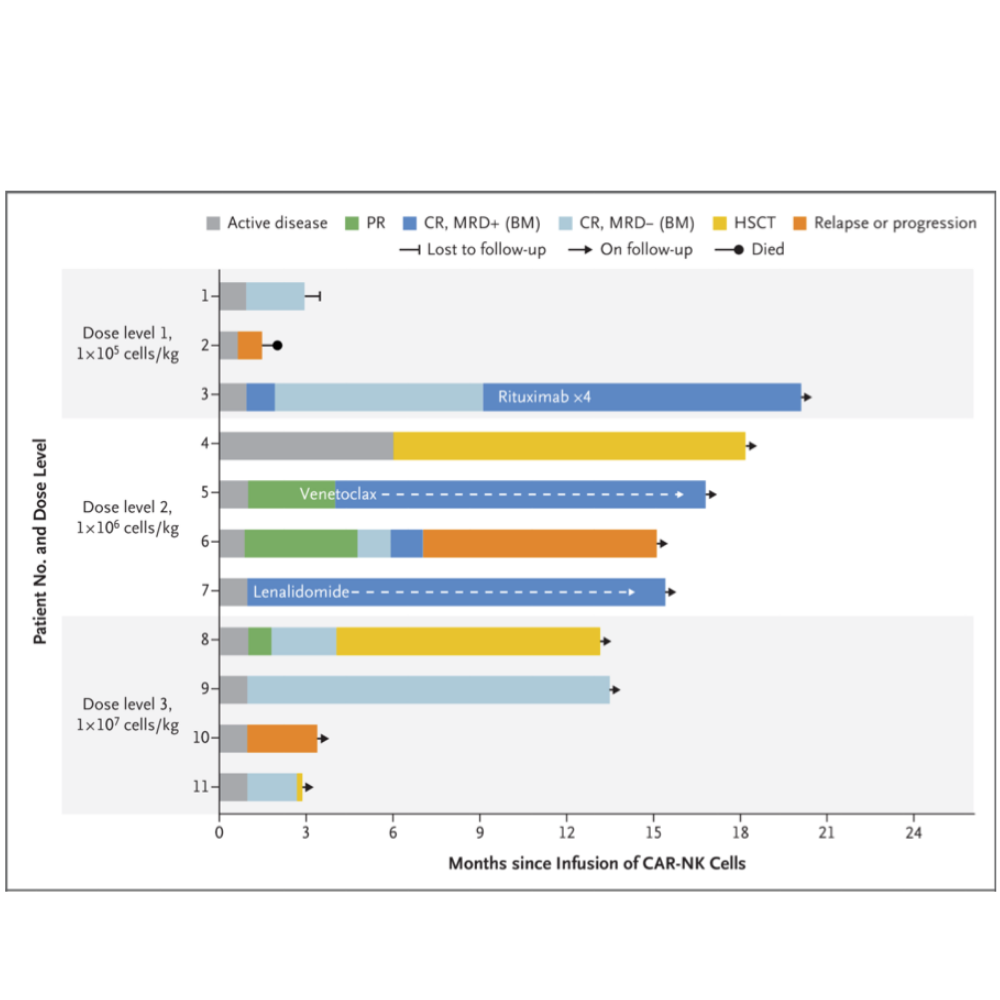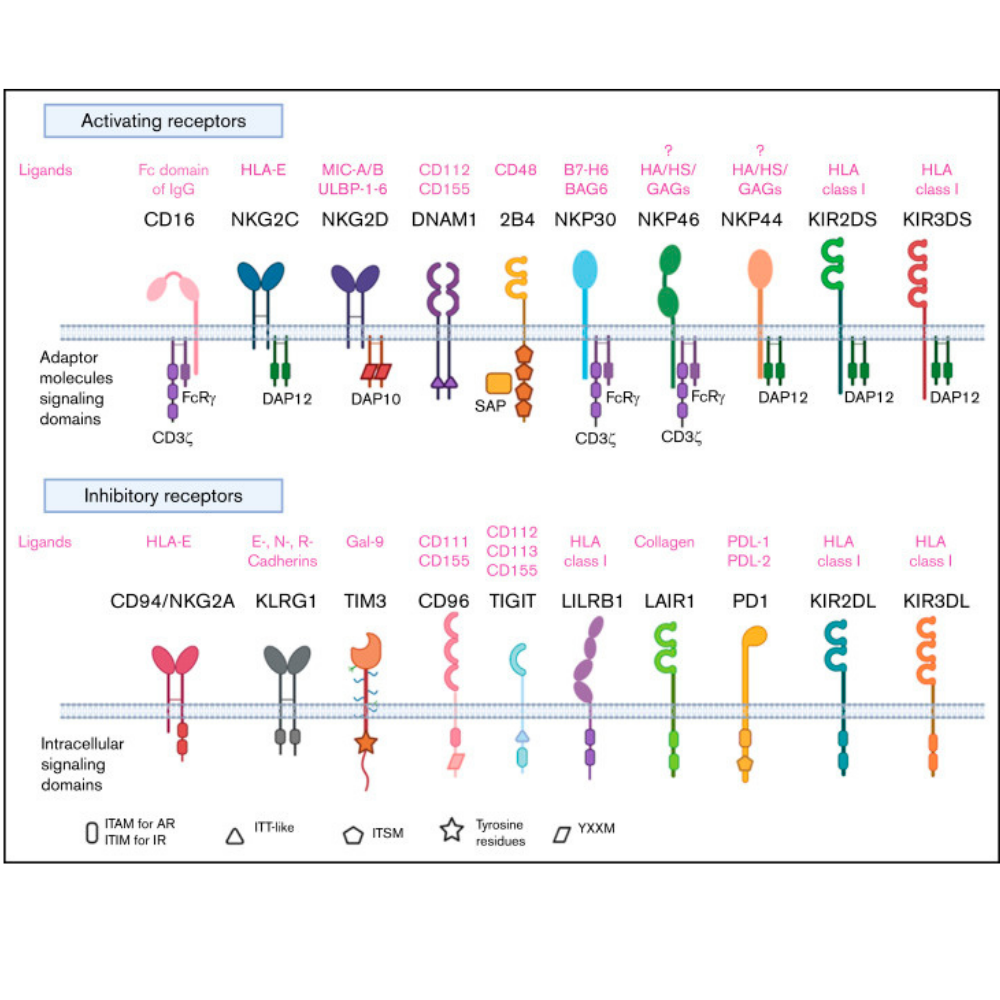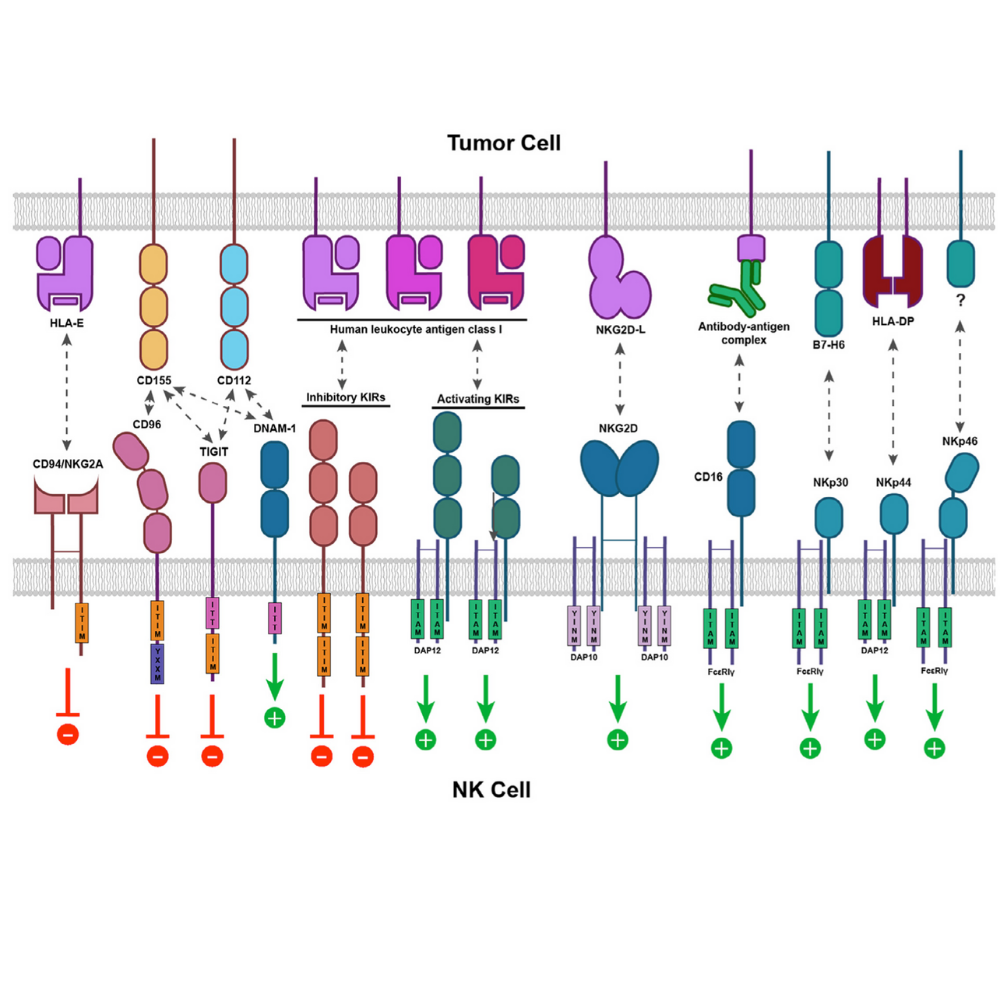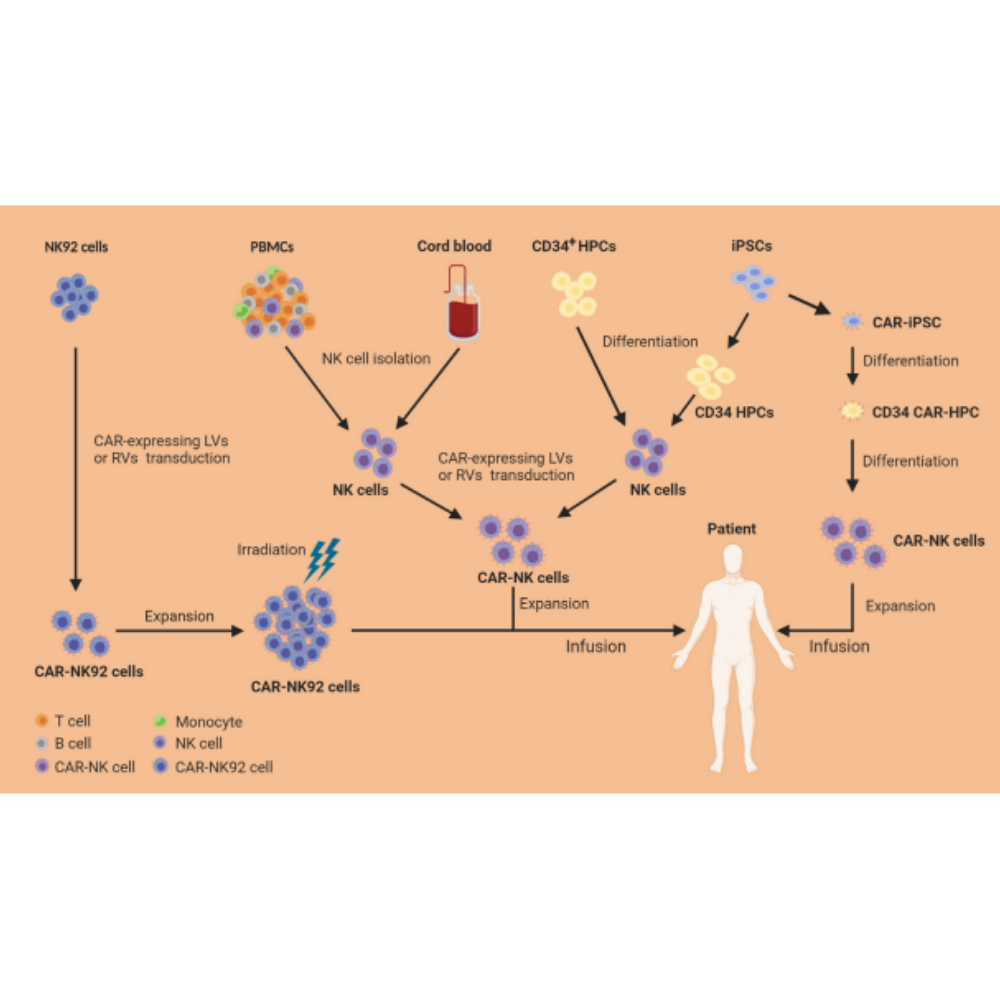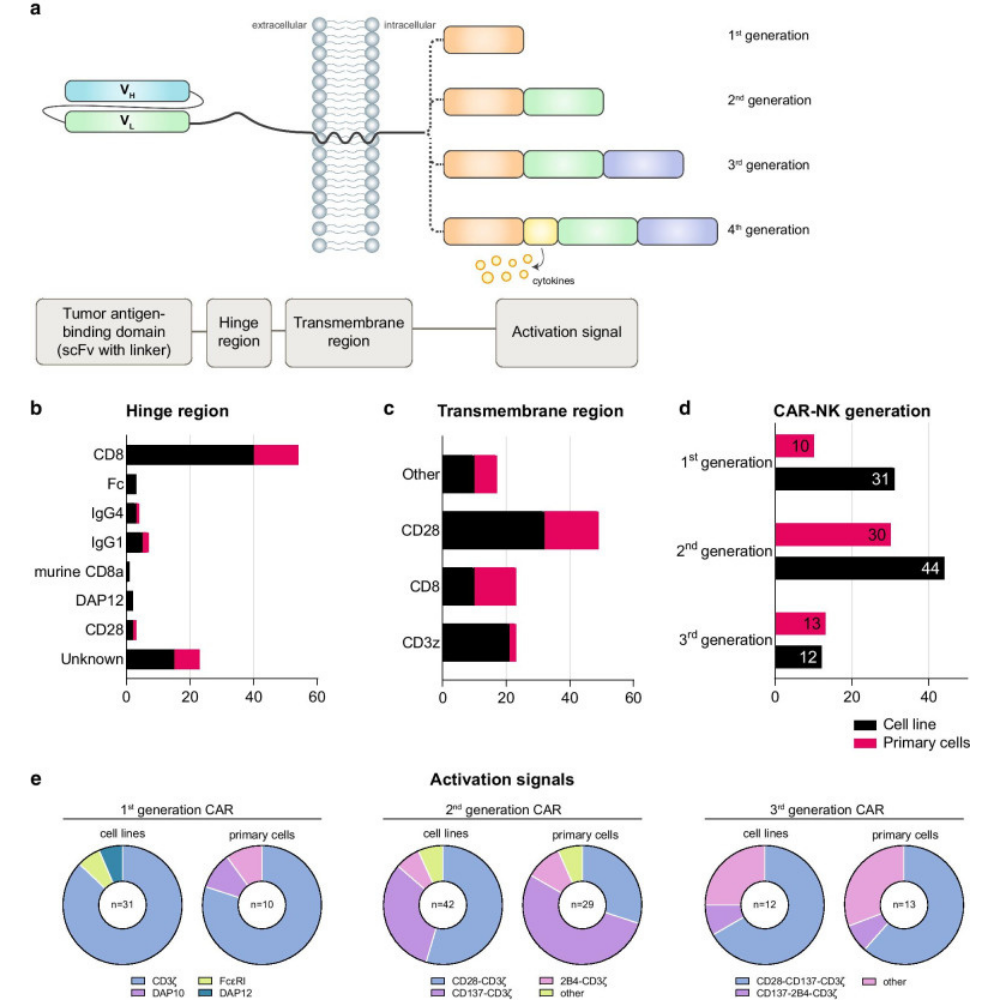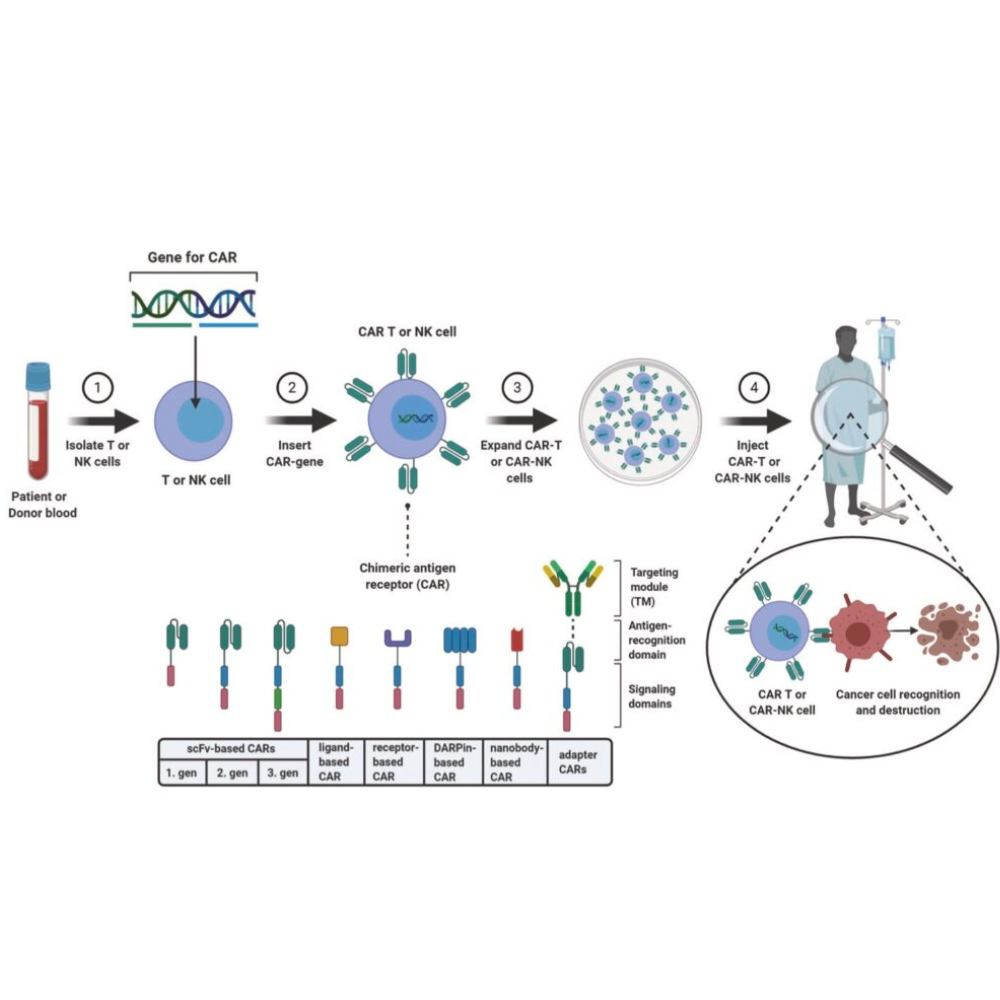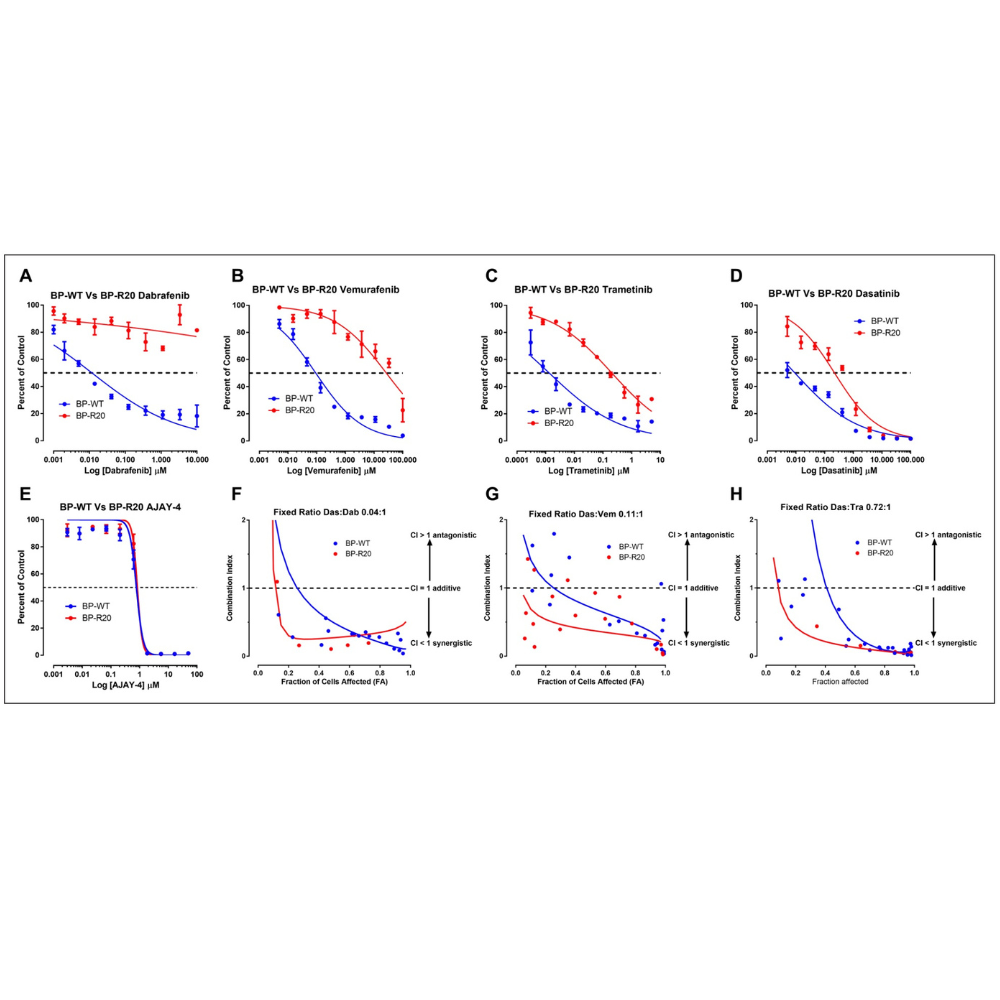Prueba Cientifica
Terapia CAR -NK
Para comprender la terapia celular CAR-NK, puede resultar útil una breve historia de la inmunología. Un antígeno es una toxina, un agente patógeno o una célula enferma (como en el cáncer) que desencadena una respuesta inmunitaria.
Un antígeno es una estructura proteica en la superficie de la célula. Estos antígenos sirven como señal de identificación. Cuando se detecta un antígeno extraño en el organismo, ya sea procedente de un virus o de una célula mutada (como en el cáncer), se desencadena una respuesta inmunitaria.
El cuerpo produce entonces glóbulos blancos para atacar al agente. Para ello, se une a él mediante receptores de antígenos situados en la superficie de los glóbulos blancos o linfocitos. Sólo entonces el organismo produce anticuerpos para destruir el agente extraño o enfermo.
El problema es que las células inmunitarias, como las células NK, no siempre son capaces de reconocer y eliminar el cáncer. Por lo tanto, para aumentar los niveles inmunitarios de un paciente, los especialistas médicos extraen sangre, recogen células NK y añaden receptores de antígenos específicos a la superficie de estas células. A continuación, inyectan las células de nuevo en el paciente mediante transfusión sanguínea, donde se multiplican y pueden atacar el cáncer, con o sin la ayuda de terapias adicionales.
Gracias al antígeno-receptor, las células inmunitarias pueden reconocer específicamente su diana. Al saber qué proteínas (antígenos) buscar, las células NK modificadas pueden cazarlos, atacarlos y destruirlos por todo el torrente sanguíneo.
Con la terapia celular CAR-NK, las células NK de un paciente (o del donante) se modifican en un laboratorio para que puedan encontrar y atacar a las células cancerosas. Las células natural killer modificadas genéticamente para convertirse en células CAR-NK actúan como guardianas del sistema inmunitario cuando se administran a los pacientes.
¿Cómo fabricar células CAR-NK ?
Las células CAR-NK se crean mediante un cuidadoso proceso. En primer lugar, se extrae sangre del paciente o de otras fuentes. En el laboratorio, la sangre se introduce en una máquina de aféresis. Este dispositivo separa los glóbulos blancos, incluidas las células NK. A esas células cosechadas se les introduce un gen que fabrica el receptor de antígeno quimérico en el ADN de cada célula. A continuación, los trabajadores de laboratorio cultivan millones de estas células modificadas genéticamente. Una vez que tienen suficientes, recogen las células, las congelan y se las devuelven al paciente mediante transfusión.
Estas dos células NK, junto con las fabricadas posteriormente por el organismo del paciente, pueden unirse a las células cancerosas y atacarlas.
Si desea saber más sobre la terapia celular CAR-NK que ofrece el Instituto F3nix, rellene el formulario de contacto.
Creemos en la curación del cáncer desde dentro.
Más información
Use of CAR-Transduced Natural Killer Cells in CD19-Positive Lymphoid Tumors
Use of CAR-Transduced Natural Killer Cells in CD19-Positive Lymphoid Tumors Infusion of CAR-NK Cells Summary This study investigates HLA-mismatched anti-CD19 CAR-NK cells derived from cord blood to patients with relapsed…
Next-generation cell therapies: the emerging role of CAR-NK cells
Next-generation cell therapies: the emerging role of CAR-NK cells Receptors in Detail Summary T cells with chimeric antigen receptors (CARs) have transformed cell therapy and shifted the treatment paradigm for…
CAR NK therapy attacks cancer quickly
CAR NK therapy offers experimental treatment option Overall Survival Summary Natural killer cells – or NK cells – are part of our immune system. They patrol our bodies for abnormal…
CAR-NK cells: A promising cellular immunotherapy for cancer
CAR-NK cells: A promising cellular immunotherapy for cancer Overall Survival Summary Natural Killer (NK) cells and CD8+ cytotoxic T cells are two types of immune cells that can kill target…
Chimeric antigen receptor natural killer (CAR-NK) cell design and engineering…
Chimeric antigen receptor natural killer (CAR-NK) cell design and engineering for cancer therapy Summary Natural killer (NK) cells are specialized immune cells that can be genetically manipulated to produce capable…
Current status and perspective of CAR-T and CAR-NK cell therapy…
Current status and perspective of CAR-T and CAR-NK cell therapy trials in Germany Chimeric Antigen Receptors Summary Chimeric antigen receptor-T cell therapies are poised to become powerful immunotherapeutic tools for…
Synergistic Drug Combinations Effective against Patient-Derived and Drug-Resistant Melanoma Cell…
Synergistic Drug Combinations Effective against Patient-Derived and Drug-Resistant Melanoma Cell Lines Patient derived Melanoma Cell Lines Summary We describe the development, optimization, and validation of 384-well growth inhibition assays for…

